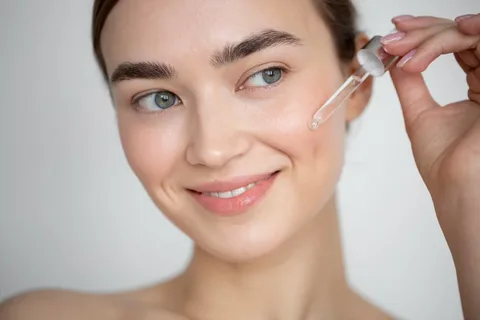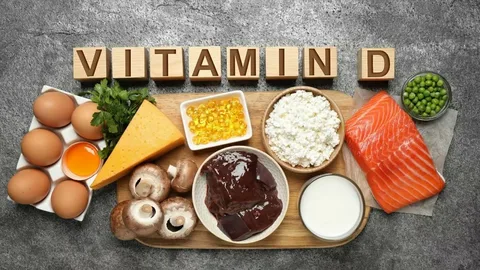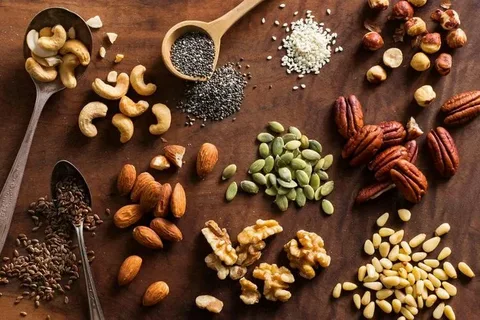Dry skin can be a frustrating and uncomfortable condition, often leading to flakiness, tightness, and irritation. Among the myriad of solutions available, vitamins play a crucial role in maintaining skin health and hydration.
When seeking the best vitamin for dry skin, it’s essential to understand how certain nutrients contribute to moisture retention, skin barrier function, and overall skin vitality.
Vitamin E is frequently heralded as a champion for dry skin due to its antioxidant properties, which help combat oxidative stress and protect skin cells. By enhancing moisture retention, Vitamin E promotes a supple and healthy complexion.
Another key player is Vitamin A, known for its role in skin cell production and repair. Retinoids, derivatives of Vitamin A, can significantly improve skin texture and hydration, making them a popular choice for combating dryness.
Incorporating these vitamins into your skincare routine, whether through topical applications or dietary sources, can be an effective strategy for achieving and maintaining hydrated, healthy skin.
In this exploration, we will delve deeper into each vitamin’s benefits, sources, and best practices for enhancing skin hydration.
Understanding Dry Skin: More Than Just Surface Deep
Ever wondered why your skin feels like parchment paper some days? Your skin’s moisture barrier plays a crucial role. Think of it as your body’s natural raincoat when it’s damaged, moisture escapes and irritants sneak in.
Key Signs Your Skin Needs Vitamin Support:
- Persistent flakiness
- Tight, uncomfortable feeling
- Rough, uneven texture
- Fine lines appearing more pronounced
- Redness and sensitivity
The Vitamin Solution: Your Skin’s Best Friends
Vitamin D: The Sunshine Vitamin Your Skin Craves
Did you know that 42% of Americans are vitamin D deficient? This powerhouse vitamin doesn’t just strengthen bones it’s crucial for skin cell growth and repair.
How Vitamin D Works for Your Skin:
- Promotes skin cell turnover
- Strengthens the skin barrier
- Reduces inflammation
- Supports immune function in the skin
“Vitamin D deficiency is often overlooked in treating chronic dry skin conditions,” says Dr. Sarah Chen, dermatologist at Stanford Medical Center. “Supplementation can make a remarkable difference in skin health.”
Best Sources of Vitamin D:
| Source | Amount (IU) |
| 15 minutes of sunlight | 1000-2000 |
| Fatty fish (3 oz salmon) | 447 |
| Fortified milk (1 cup) | 115-124 |
| Egg yolks | 41 |
Vitamin E: Your Skin’s Shield
Think of vitamin E as your skin’s personal bodyguard. This fat soluble antioxidant fights free radicals while keeping your skin’s moisture locked in.
Benefits for Dry Skin:
- Strengthens cell membranes
- Reduces UV damage
- Enhances skin barrier function
- Supports natural oil production
Case Study: A 2023 study in the Journal of Clinical Dermatology found that combining vitamin E supplementation with topical application reduced skin dryness by 67% after 8 weeks.
Vitamin C: The Collagen Builder
Your skin’s structure depends heavily on collagen, and vitamin C is the master builder. It’s not just about preventing scurvy anymore!
How Vitamin C Transforms Dry Skin:
- Boosts collagen production
- Enhances skin barrier function
- Reduces water loss
- Brightens complexion
Pro tip: Pair vitamin C with vitamin E for enhanced absorption and effectiveness.
Vitamin A (Retinol): The Cell Communicator
Vitamin A doesn’t just tell your skin cells what to do it makes sure they listen. This powerful vitamin regulates dry skin and oil production and cell turnover.
Natural Sources of Vitamin A:
- Sweet potatoes
- Carrots
- Spinach
- Beef liver
- Eggs
Food Sources for Healthy Skin
Maintaining hydrated and healthy skin often begins with the right nutrition. Specific food sources rich in essential vitamins and fatty acids can significantly improve skin moisture and overall appearance.
Here are some key categories of foods that can help combat dry skin:
1. Fatty Fish
Fatty fish, such as salmon, mackerel, sardines, and trout, are packed with omega 3 fatty acids, which are crucial for maintaining skin health. These healthy fats help to reduce inflammation and enhance the skin’s barrier function, which prevents moisture loss.
Omega 3s also promote the production of natural oils in the skin, leading to a more supple and hydrated appearance. Regular consumption of fatty fish can also provide essential vitamins like Vitamin D and Vitamin E, both known for their skin protective properties.
Aim to include fatty fish in your diet at least twice a week to reap these benefits.
2. Leafy Greens
Leafy greens are nutritional powerhouses that can greatly benefit dry skin. Vegetables like spinach, kale, and Swiss chard are rich in antioxidants, vitamins, and minerals. Vitamin A, found abundantly in leafy greens, plays a crucial role in skin cell production and repair.
Additionally, these greens contain Vitamin C, which helps with collagen production, contributing to skin elasticity and hydration. The high water content in leafy greens also aids in overall hydration, making them a fantastic addition to salads, smoothies, or as cooked sides.
3. Nuts and Seeds
Nuts and seeds are excellent sources of healthy fats, particularly omega-3 and omega-6 fatty acids, which are vital for maintaining skin moisture. Walnuts, flaxseeds, chia seeds, and sunflower seeds are particularly beneficial for skin health.
In addition to healthy fats, these foods are rich in Vitamin E, which helps protect the skin from oxidative stress and promotes moisture retention. Nuts can also provide essential minerals like zinc, which is important for skin healing and repair.
Snacking on a handful of nuts or adding seeds to your meals can be an easy way to boost your intake.
4. Avocados and Olive Oil
Avocados are not only delicious but also incredibly nutritious for your skin. They are rich in healthy fats, specifically monounsaturated fats, which help keep the skin hydrated and supple.
Additionally, avocados contain vitamins E and C, both of which are antioxidants that protect the skin from damage and promote healing. Olive oil, another source of healthy fats, is renowned for its anti inflammatory properties.
It can help maintain skin moisture and elasticity. Using olive oil in cooking or as a dressing can be a simple way to incorporate these benefits into your diet.
5. Whole Grains
Whole grains, such as brown rice, quinoa, barley, and whole wheat, are an important part of a skin friendly diet. They provide B vitamins, particularly niacin (Vitamin B3), which helps improve skin barrier function and hydration.
Whole grains are also high in fiber, which supports overall health and can aid in reducing inflammation. By replacing refined grains with whole grains in your diet, you can promote better skin health while also supporting digestive health.
Supporting Players: Essential Nutrients
Think of these as your skin’s backup dancers they might not steal the show, but the performance wouldn’t be complete without them:
Essential Fatty Acids:
- Omega-3s
- Omega-6s
- Omega-9s
Minerals:
- Zinc for healing
- Selenium for protection
- Copper for collagen formation
Your Action Plan: Making Vitamins Work for Your Skin
Internal Strategy
- Start with a blood test to check vitamin levels
- Begin supplementation based on deficiencies
- Focus on vitamin rich foods
- Stay consistent with your routine
External Strategy
- Use vitamin infused serums
- Apply sunscreen daily
- Moisturize while skin is damp
- Avoid harsh cleansers
Lifestyle Factors That Boost Vitamin Effectiveness
Your vitamins work better when supported by healthy habits:
Daily Habits for Maximum Benefits:
- Drink 8-10 glasses of water
- Get 7-9 hours of sleep
- Exercise moderately
- Manage stress levels
- Avoid excessive alcohol
Professional Guidance: When to Seek Help
Red Flags That Need Attention:
- Severe flaking or peeling
- Persistent redness
- Itching that won’t stop
- Bleeding or cracking skin
Frequently Asked Questions
- Can I overdose on skin vitamins? While fat soluble vitamins can accumulate, following recommended doses makes toxicity unlikely.
- How long until I see results from vitamin supplements? Most people notice improvements in skin hydration within 4-6 weeks of consistent supplementation.
- Should I take all these vitamins together? Space fat soluble vitamins throughout the day with meals for optimal absorption.
- Are gummy vitamins as effective as pills for skin health? Traditional supplements typically provide more consistent dosing than gummies.
- Can I get all my skin vitamins from food alone? While possible, modern diets often need supplementation for optimal skin health.
Conclusion
The journey to healthy, hydrated skin isn’t about quick fixes it’s about nourishing your body’s largest organ from the inside out. By understanding and implementing these vitamin strategies, you’re not just treating symptoms; you’re building a foundation for lasting skin health.
Remember: consistency is key. Start with one or two changes, monitor your skin’s response, and gradually build your perfect skin care routine. Your skin’s transformation won’t happen overnight, but with patience and the right vitamin support, you’ll see lasting improvements in your skin’s health and appearance.
Disclaimer: Always consult with a healthcare provider before starting any new supplement regimen, especially if you have existing health conditions or take medications.




